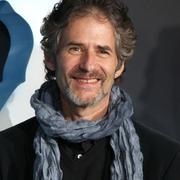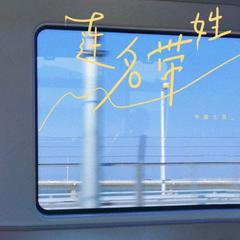James Horner
James Horner生于1953年8月14日洛杉矶。5岁开始学钢琴,在伦敦度过他的求学之年,在那他进入了皇家音乐学院,70年代早期迁往加州,在南加州大学获得学士学位后,又继续攻读获得音乐作曲硕士和博士学位。 毕业后Horner在南加州大学教授音乐理论,获得了一个来自美国电影学院为The Dronght一片作曲的机会,Horner很快喜欢上了电影作曲,在受雇于Roger Corman的New World Pictures公司之前还写过几部电影配乐作品,这都是他早期的电影配乐作品,另外他还为,,这些业绩不佳的电影创作音乐,但是他的配乐手法的日益成熟渐渐为好莱坞的配乐权威所注意。他应邀为配乐,于是他的事业开始走向辉煌。“我是个爱尔兰音乐的追随者,我喜爱它的忧郁的气息和永恒的品质,我和其他作曲家不同,因为我不把音乐看作是一种工作,而把他看成艺术。” ——James Horner 在十多年时间内,Horner成为乐界Fans的论战的中心,他的风格和技巧一次又一次地遭到质疑,以致他很快成为好莱坞最易识别的作曲家之一。他为所作的配乐使之飙升为国际巨星,虽然他强调自己对名气不感兴趣,但是那并不影响他在其事业中的专业发展眼光。 Horner的事业仍就年轻,但是却在风格上有些显著变化,八十年代早期,Horner为主与几位天才的音乐家一起用电子合成器创作了一种富有创造性和革新意义的音乐,承,,和,他们相信把管弦乐和电子音乐合为一体是一种未来配乐发展必然趋势,事实也证明有不少拥护者在追随这种刚刚起步的潮流。 不论这些争议多么激烈,Horner在80年代中期开始改变他的作曲范畴。1985年的作品Cocoon提示Horner开始完全使用弦乐,到1988年,虽然还在Vibes和Red Heat中运用了电子合成器乐,但Horner已完成了他第一次的两部大型弦乐作品:Willow和The Land Before Time,这两部作品对新式乐器的兴趣和完全的弦乐以及流行电影谱曲的机会融为一体。一年之后,伴随他获得第一个令他心醉的学院奖提名的作品,又因获得他的首次巨大成功。 Horner继极富有经验的配乐家Jerry Goldsmith,又一个在90年代早期通过无数小电影迅速崛起。他成为儿童电影的专业配乐者,但同时也为一些电影创作了一些更精致,有力的作品。如:,,等。1995年,他由一部优秀作品又再度成为国内乐界亮点,热度刚退,Horner又因和这两部不同民族,题材均较严肃的作品荣获学院奖提名。 1996年令Horner的事业再创高峰的作品是,一部小型,有着乡土浓郁气息的作品。它最终平息了那些认为Horner的创新天才有限的异议。他对爱尔兰音乐的钟爱,已经表露无遗在作品,和中,并最后引发了1997~1998年的火爆场面。自从该原声大碟在排行榜上高居榜首达6个月之后,Horner与SONY公司合作又发行了和,特别是,似乎又一次让他创造出了配乐界一个神话。 作为一位年轻的作曲家,Horner会同其作曲被大家认可,不管许多电影音乐迷对他的作品又爱又憎,Horner会继续写上他那及富有煽动性的作品。Famed for his lush, sweeping scores for films including Braveheart, Apollo 13, and Titanic, the prolific composer James Horner was born in Los Angeles on August 14, 1953. Educated at London's Royal College of Music as well as local universities USC and UCLA, he landed his first motion picture assignments during the 1970s, scoring B-movies like The Lady in Red, Humanoids of the Deep, and Battle Beyond the Stars for producer Roger Corman's New World organization. By 1982, Horner had moved on to major studio fare including 48 Hrs. and Star Trek II: The Wrath of Khan, and four years later he notched his first Academy Award nominations for his score to the science fiction classic Aliens as well as for the song "Somewhere Out There," from the animated picture An American Tail. In 1989, Horner earned a second Oscar nomination for his score to Field of Dreams, that same year winning a Grammy for his work on the Civil War drama Glory; in 1995 he was honored with two more Academy Award noms, for Braveheart and Apollo 13. Horner finally struck Oscar gold in 1997, taking home statuettes for his score to the blockbuster Titanic as well as the film's original song "My Heart Will Go On," a hit for Celine Dion. After writing scores for movies like Commando and New World, Film Music Masterworks: Original Soundtracks, which contained pieces from some of Horner's best-known work (Apollo 13, Braveheart, Willow, and of course, Titanic, among others), was issued in 2006.


 Horner: For The Love Of A Princess - James Horner
Horner: For The Love Of A Princess - James Horner
























